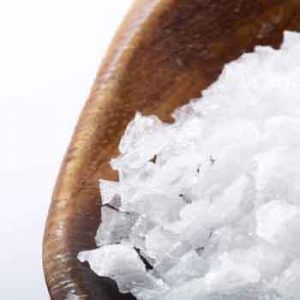
More evidence that low-calorie sweeteners are bad for your health
Studies show that artificial sweeteners can raise the risk of hypertension, metabolic syndrome, type 2 diabetes and heart disease, including stroke.

Natural Health News — A large worldwide study has found that, contrary to popular opinion, low-sodium diets may not be beneficial and may actually increase the risk of cardiovascular disease (CVD) and death compared to average sodium consumption.
In fact, the study, which involved more than 130,000 people from 49 countries, suggests that the only people who need to worry about reducing sodium in their diet are those with hypertension (high blood pressure) and have high sodium consumption.
They researchers looked specifically at whether the relationship between sodium (which makes up around 40% of table salt) intake and death, heart disease and stroke differs in people with high blood pressure compared to those with normal blood pressure.
The researchers showed that regardless of whether people have high blood pressure, low-sodium intake is associated with more heart attacks, strokes, and deaths compared to average intake.
» For years, people in the West have been told they are taking in too much sodium and that this is a risk for developing heart disease.
» A new study by Canadian researchers suggests, however, that the risks have been overstated and that only those who have both hypertension and high sodium intake are at risk.
» The authors suggest salt/sodium is important for health and that for most of us the current average intake may actually be about right.
“These are extremely important findings for those who are suffering from high blood pressure,” said Andrew Mente, lead author of the study, a principal investigator of Population Health Research Institute (PHRI) and an associate professor of clinical epidemiology and biostatistics at McMaster University’s Michael G. DeGroote School of Medicine.
“While our data highlights the importance of reducing high salt intake in people with hypertension, it does not support reducing salt intake to low levels.
“Our findings are important because they show that lowering sodium is best targeted at those with hypertension who also consume high sodium diets.”
How much sodium?
Current intake of sodium in Canada is typically between 3.5 and 4 grams of sodium per day (equivalent to 8-10 g/1.5 tsp salt) – the same as in the UK. Some guidelines recommend that the entire population lower sodium intake to below 2.3 grams per day (approx 1 tsp salt), a level that fewer than 5% of us in the developed world consume.
Previous studies have shown that low-sodium, compared to average sodium intake, is related to increased cardiovascular risk and mortality, even though low sodium intake is associated with lower blood pressure. But increasingly the ‘salt is bad’ mantra is being challenged.
This new study, published in the Lancet, shows that the risks associated with low-sodium intake – less than 3g per day – are consistent regardless of a patient’s hypertension status.
Further, the findings show that while there is a limit below which sodium intake may be unsafe, the harm associated with high sodium consumption appears to be confined to only those with hypertension.
Only about 10% of the population in the global study had both hypertension and high sodium consumption (greater than 6 grams per day).
A new approach needed
Mente said that this suggests that the majority of individuals in Canada and most countries are consuming the right amount of sodium.
He added that targeted sodium reduction in those who are most susceptible because of hypertension and high salt consumption may be preferable to a population-wide approach to reducing sodium intake in most countries (except those where the average sodium intake is very high, such as parts of central Asia or China).
He added that what is now generally recommended as a healthy daily ceiling for sodium consumption appears to be set too low, regardless of a person’s blood pressure level.
“Low sodium intake reduces blood pressure modestly, compared to average intake, but low sodium intake also has other effects, including adverse elevations of certain hormones which may outweigh any benefits. The key question is not whether blood pressure is lower with very low salt intake, instead it is whether it improves health,” Mente said

Please subscribe me to your newsletter mailing list. I have read the
privacy statement